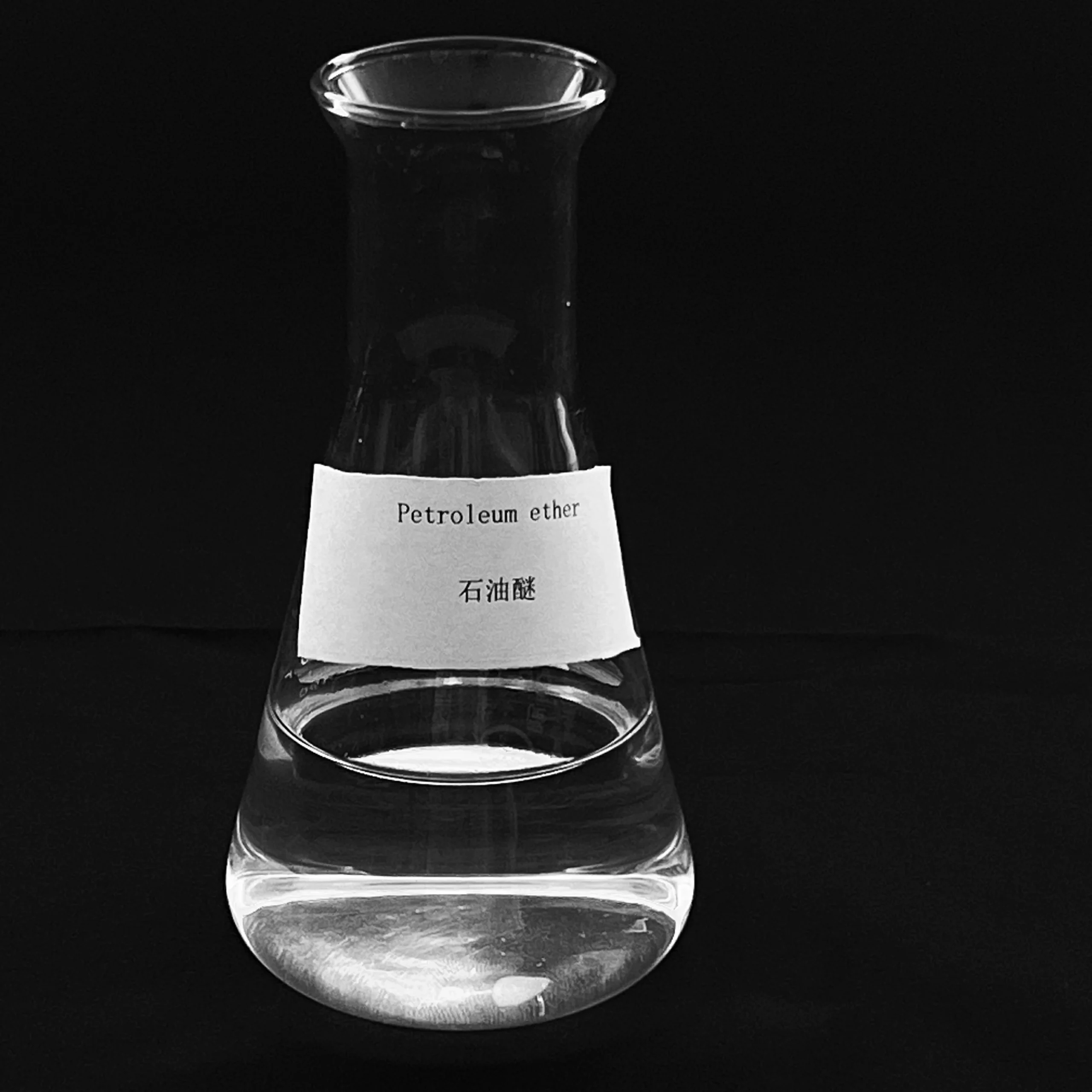When it comes to the storage and handling of petroleum ether, it is crucial to follow proper safety precautions to prevent accidents and ensure the well-being of individuals and the surrounding environment.
Here are some general storage and handling precautions for petroleum ether:
Storage Location: Store petroleum ether in a cool, well-ventilated area away from direct sunlight, heat sources, and ignition or flame sources.
Flammable Storage: Petroleum ether is highly flammable, so it should be stored in approved flammable liquid storage cabinets or containers specifically designed for flammable substances.
No Smoking: Prohibit smoking or open flames in the storage and handling areas to prevent ignition of vapors.
Electrical Equipment: Ensure that electrical equipment, including switches and lights, in the storage area is explosion-proof and meets the requirements for hazardous locations.
Grounding and Bonding: Ground and bond all containers and equipment used for transferring or handling petroleum ether to prevent the buildup of static electricity, which can potentially cause sparks and fires.
Adequate Ventilation: Maintain proper ventilation in the storage area to prevent the accumulation of flammable vapors. This can be achieved through natural ventilation or mechanical ventilation systems.
Personal Protective Equipment (PPE): Use appropriate PPE, such as gloves, safety goggles, and flame-resistant clothing, when handling petroleum ether to protect against skin contact, eye irritation, and potential fire hazards.
Handling Precautions: Handle petroleum ether with care to avoid spills or leaks. Use approved containers and equipment for transferring the solvent, and ensure proper sealing and closure of containers when not in use.
Fire Safety: Have suitable fire extinguishing equipment, such as fire extinguishers or fire suppression systems, readily available and ensure that personnel are trained in their use. Follow established fire safety protocols in case of a fire or emergency.
Regulatory Compliance: Familiarize yourself with local regulations and requirements regarding the storage and handling of petroleum ether. Adhere to any specific guidelines or permits that may be necessary.
It is important to note that the specific storage and handling precautions for petroleum ether may vary depending on local regulations, the concentration of the solvent, and the specific hazards associated with the product. Always consult the material safety data sheet (MSDS) or safety guidelines provided by the manufacturer for detailed and accurate information on proper storage and handling practices.
How does petroleum ether differ from other solvents?
Petroleum ether differs from other solvents in several ways, including its composition, boiling range, and specific applications.
Here are some key differences between petroleum ether and other solvents:
Composition: Petroleum ether is a mixture of hydrocarbons, primarily consisting of alkanes (paraffins). The specific composition can vary depending on the source and refining process. In contrast, other solvents may have different chemical compositions, such as alcohols (e.g., ethanol, isopropyl alcohol), ketones (e.g., acetone), or chlorinated solvents (e.g., dichloromethane).
Boiling Point Range: Petroleum ether has a relatively low boiling point range, typically between 30°C and 60°C (86°F and 140°F). This characteristic makes it suitable for applications that require rapid evaporation and quick drying. In comparison, other solvents may have higher boiling points, allowing for slower evaporation rates and longer drying times.
Flammability: Petroleum ether is highly flammable and poses fire and explosion hazards. It has a low flash point, which is the temperature at which it can emit vapors that can ignite in the presence of an ignition source. Other solvents may have varying degrees of flammability, with some being highly flammable and others having lower flammability risks.
Solvency Power: Petroleum ether is known for its solvency power, particularly for nonpolar substances such as oils, greases, waxes, and certain organic compounds. It is commonly used as a cleaning solvent, degreaser, China Petroleum Ether manufacturer or extraction solvent in various industries. In comparison, other solvents may have different solvency properties, making them more suitable for dissolving specific types of substances.
Safety Considerations: Due to its flammability, proper safety precautions must be taken when handling petroleum ether. This includes storing it in approved flammable liquid storage areas, using appropriate ventilation, avoiding ignition sources, and following safety guidelines. Other solvents may have different safety considerations, such as toxicity, corrosiveness, or environmental impacts, which need to be taken into account.
Regulatory Restrictions: The use and availability of petroleum ether may be subject to specific regulations and restrictions in certain jurisdictions due to its flammability and potential health hazards. Other solvents may also have specific regulations or limitations on their use based on their chemical properties and potential risks.
It is important to note that the selection of a solvent depends on the specific application, desired properties (e.g., volatility, solvency), safety considerations, and regulatory compliance. It is advisable to consult safety data sheets (SDS) and follow manufacturer recommendations when working with any solvent.
